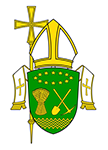All clergy and religious from outside the diocese who wish to provide a ministry and/or religious services in the Diocese of Wilcannia-Forbes are required to complete an online form, submit the required documentation, and receive confirmation of clearance to minister in the diocese prior to providing any ministry and/or religious service in the diocese. To begin the process, select the category that applies to you.
Clergy and Religious visiting from within Australia Clergy and Religious visiting from overseasIn order to carry out a public ministry in our Diocese, visiting Clergy and Religious are required to be compliant with both Civil Law and Church Requirements.
- Safeguarding Statement / Individual Safeguarding Declaration and Disclosure Form (Church requirement – Australian Catholic Safeguarding Ltd (ACSL) have developed a Safeguarding Statement form to replace former Towards Healing Declarations 45.6 and 45.7.)
- Working with Children Check Number from your state of appointment/residence (Civil Law)
- Celebret – International Visitors only – (Church requirement)
All of this information can be provided via the above links
Click here to access Wilcannia-Forbes Professional Standards Requirements
Working with Children Check Number
A supply or visiting Priest or Religious who is a NSW resident must provide a NSW Employee WWCC number for verification by the Diocese.
If a supply or visiting Priest or Religious is an interstate resident then an interstate WWCC is permissible unless he/she works more than 30 days in NSW in a calendar year. The Priest or Religious must supply details of the interstate WWCC check to the Diocese and advise of the number of days worked in NSW in the current calendar year and where.
Click here for more information
Celebret
International Visitors are required to provide the Chancery with a Celebret.
A priest is permitted to celebrate the Eucharist, even if not known to the rector of the church, provided either that he presents commendatory letter, not more than a year old, from his own Ordinary or Superior, or that it can be prudently judged that he is not debarred from celebrating.
Canon 903
It is also necessary for the Safeguarding Statement / Individual Safeguarding Declaration and Disclosure Forms to be provided.
If you have any further questions about our Diocesan requirements visiting Clergy or Religious please do not hesitate to contact Aliesha Bray Ph: (02) 68539341, or email safeguarding@wf.catholic.org.au
